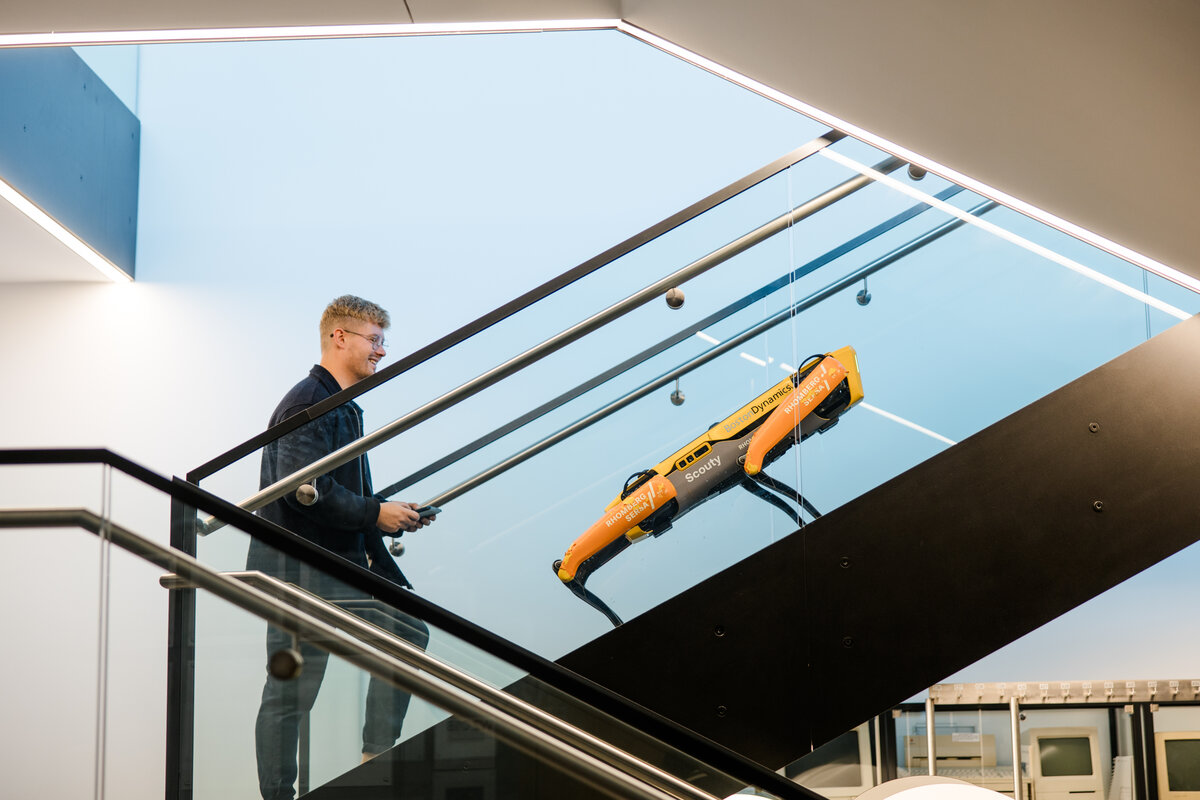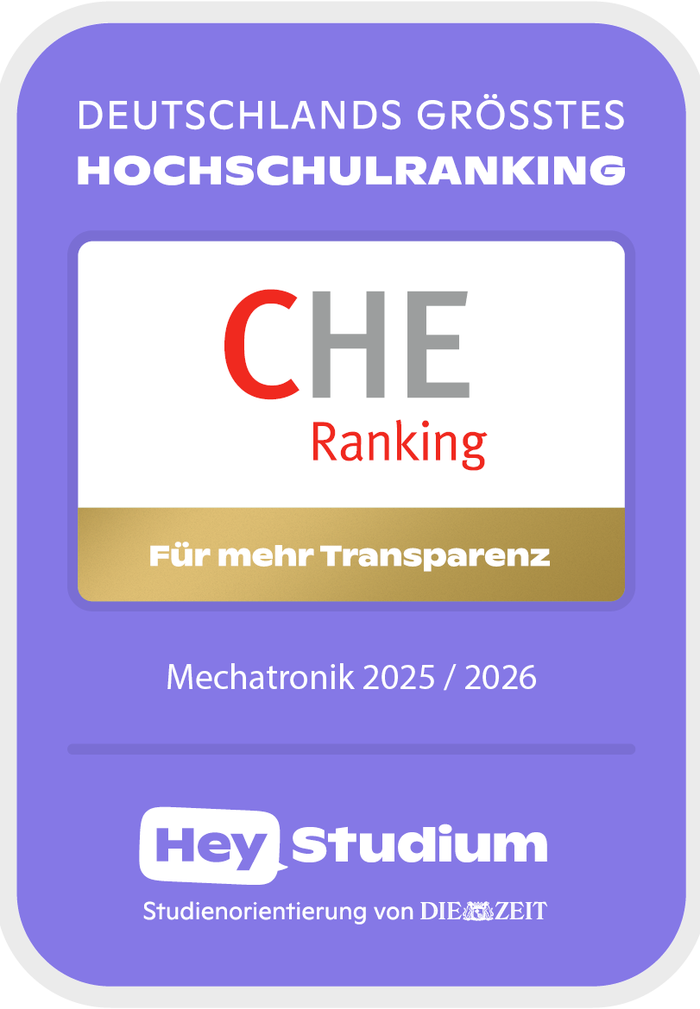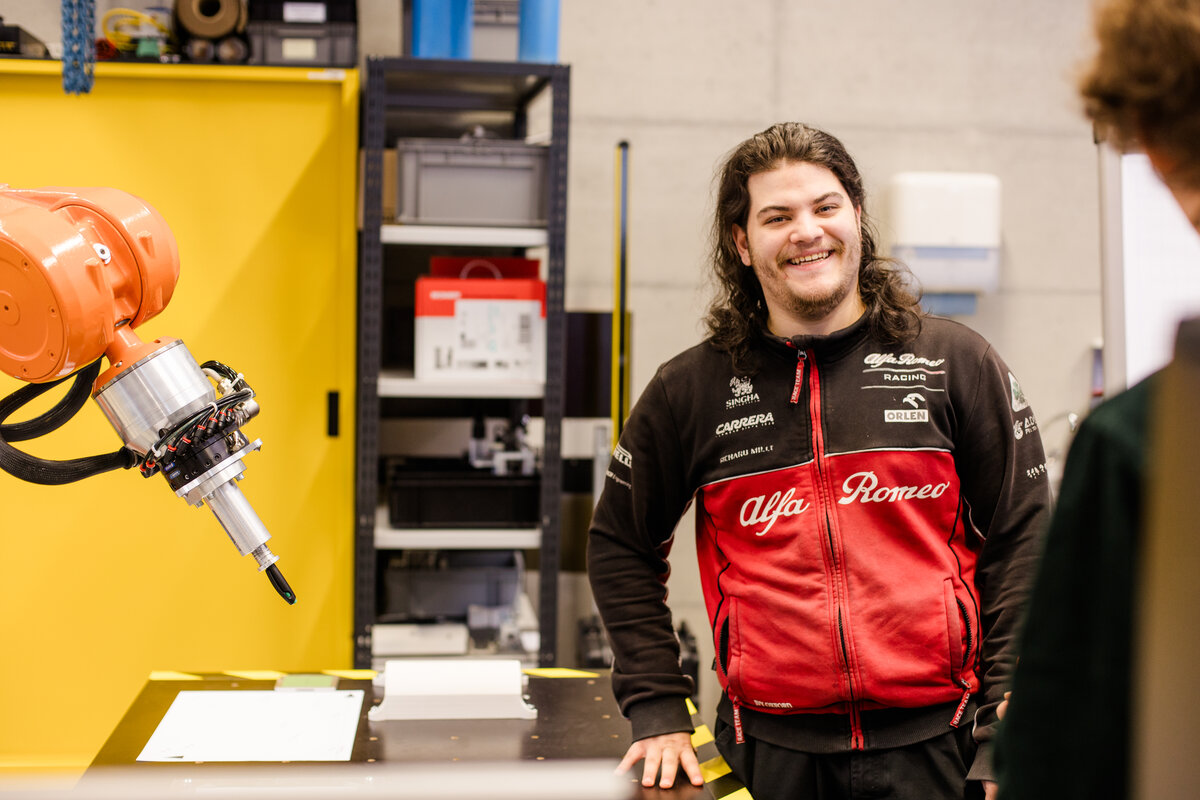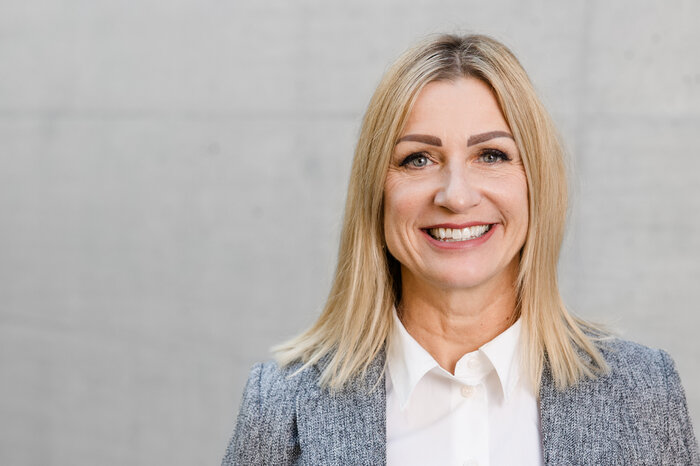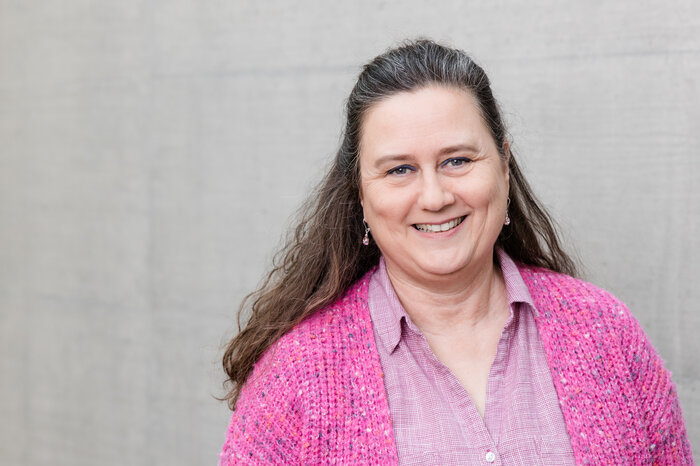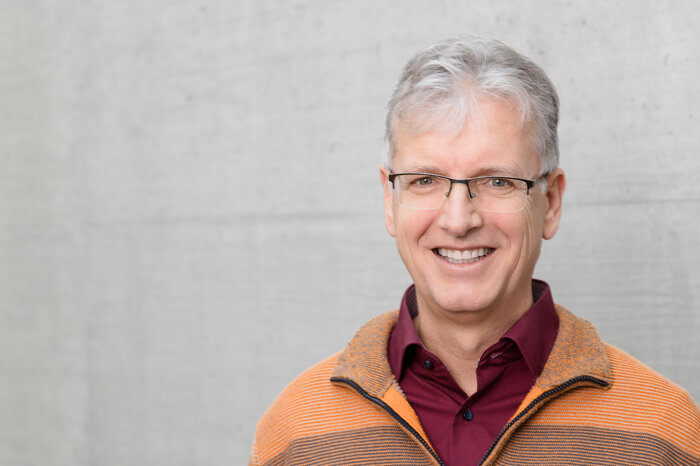Mechatronics
Bachelor's degree, part-time
In the part-time Mechatronics degree programme, you combine your professional experience with in-depth knowledge in mechanics, electronics, and computer science. You’ll learn how these disciplines come together to create intelligent systems - from robotics and automation to digitalised plants and smart device technologies.
The programme prepares you to take on responsibility in a dynamic technology-driven world – whether in the automotive or aerospace industries, process engineering, or high-tech mechanical engineering. As a mechatronics engineer, you actively contribute to innovation and develop smart, connected solutions for the future.
The programme is available both as a full-time and a part-time study option.
The 180 ECTS credits are distributed across six semesters and include compulsory modules, elective specialisations, and the bachelor's thesis.
Elective Modules:You will shape your personal academic focus in the 4th and 5th semesters by selecting from the range of available elective modules.
Individual Competences:
At least 12 ECTS credits must be earned through individual choices – for example, elective modules, micro-credentials in an international context, or other specialisation opportunities. You are free to decide how many modules you take and in which semester.
ECTS:
ECTS stands for European Credit Transfer System. In line with international standards, a total of 180 ECTS credits must be obtained over the course of six semesters.
LE (Teaching Unit):
1 teaching unit (LE) equals 45 minutes of instruction.
Course content in detail
E | Elective course
ECTS: Performance points according to the "European Credit Transfer System". According to international standards, 180 ECTS points must be earned over 6 semesters.
Attendance at the FHV, e-learning units, self-organised learning and group and project work alternate throughout the course. We recommend reducing your professional activity to a maximum of 70%. In addition, plan for approximately five days of holiday per year for your studies.
Courses and examinations take place:
- In the first three semesters on Fridays and Saturdays.
- The specialisations in the fourth and fifth semesters may also take place during the week.
- In the final semester, most courses take place on Mondays.
Mobility window: Semester abroad possible in the 5th semester
Internship: In the 6th semester (starting in January), you will put your knowledge into practice. You will work at least 40 days in a company and combine theory with practice. On Mondays, you will be at FHV, and the rest of the week you will be at the company.
- Admission to the final oral examination:
- all courses in the curriculum must have been successfully completed (examination regulations and grading scale) and
- the Bachelor's thesis must have been graded positively.
- Degree awarded: Bachelor of Science in Engineering, BSc
- Level of the degree according to the national and European qualifications framework: Bachelor (1st cycle)
- Field of study according to ISCED-F code: 0714 - Electronics and automation
Career opportunities after graduation
By studying for a Bachelor's degree in Mechatronics at FHV, you will lay the foundation for a versatile career in a forward-looking technical field. National and international companies rely on the expertise of mechatronics engineers – and you could soon be one of them. Thanks to the solid education you receive, a wide range of exciting career opportunities will open up to you, such as becoming a development or research engineer.
The degree also qualifies you for a Master's programme at a university of applied sciences or a traditional university, both in Austria and abroad. At FHV, you can choose from Master's programmes in Mechatronics, Computer Science or Sustainable Energy Systems. Building on this, a doctoral or PhD programme at a university is also possible.
Research Engineer: Responsible for scientific research, feasibility studies, concept verification, and the preparation of scientific documentation.
Development Engineer: Involved in the system design of mechatronic systems, the specification of components, and software development for embedded systems.
Process Engineer: Responsible for the design and optimisation of manufacturing processes, as well as programming production components and special-purpose machinery.
Test Engineer: Carries out tests for the verification and validation of products and systems, including the creation and evaluation of test plans.
Hardware Engineer: Develops and designs hardware components and integrates them into mechatronic systems.
Why study Mechatronics at FHV?
- Tailored support for students from diverse educational backgrounds (such as AHS, BHS, apprenticeships, or lateral entry without prior technical knowledge).
- Team-building activities, revision sessions, and refresher courses at the start of the programme.
- Coaching and consultation hours for individual support.
- In tutorials, you benefit from the knowledge and experience of more advanced students.
- Individual solutions for challenging or high-stress situations.
- Recordings of selected lectures, along with e-learning and blended learning options.
- Reliable planning: exam dates and on-site attendance requirements are scheduled well in advance.
Access and application
The Bachelor's degree programme in Mechatronics requires the following qualifications or competencies:
- General university entrance qualification, or
- Relevant professional qualification with additional examinations
For this degree programme, relevant professional qualifications include the completion of any apprenticeship or vocational secondary school programme with a training period of at least three years, or a comparable vocational qualification in terms of scope and requirements, in the fields of technology, electrical engineering, mechanical engineering, as well as related areas such as paper or chemical industries.
The programme director decides on the relevance of the qualification. Applicants with a relevant professional qualification must successfully complete the additional examinations at FHV.
For admission, proof of language proficiency at level B2 in both German and English (according to the Common European Framework of Reference for Languages) is required.
FHV's application periods are structured as follows:
Application Period I 15 November – 1 March
Apply by 1 March to benefit from an early admission decision.
Application Period II - until 31 May
You can apply for all study programmes regularly until 31 May.
Application Period III - until 31 August
Some programmes may still offer individual places until 31 August.
Note: The application deadline for applicants from third countries (non-EU/non-EEA, except Switzerland) is 1 March.
Two steps to your desired degree at FHV:
Step 1:
Assessment of your complete application documents, your prior education, and relevant experience.
Step 2:
In a personal interview, we get to know you better – your goals, your motivation, and your reasons for choosing this degree programme.
Special Provisions: If you hold a qualification from a higher vocational secondary school (e.g. HTL, HAK), certain courses may be individually credited towards your degree. Details will be discussed with the programme director during a personal consultation.
Do you still have questions about the study programme?
or a personal consultation, please contact us directly:
| Monday to Thursday | 9:00 - 11:30 am |
individual appointment
Information events are held at the FHV throughout the year. You are welcome to come along and get advice. Here is an overview of upcoming events:
